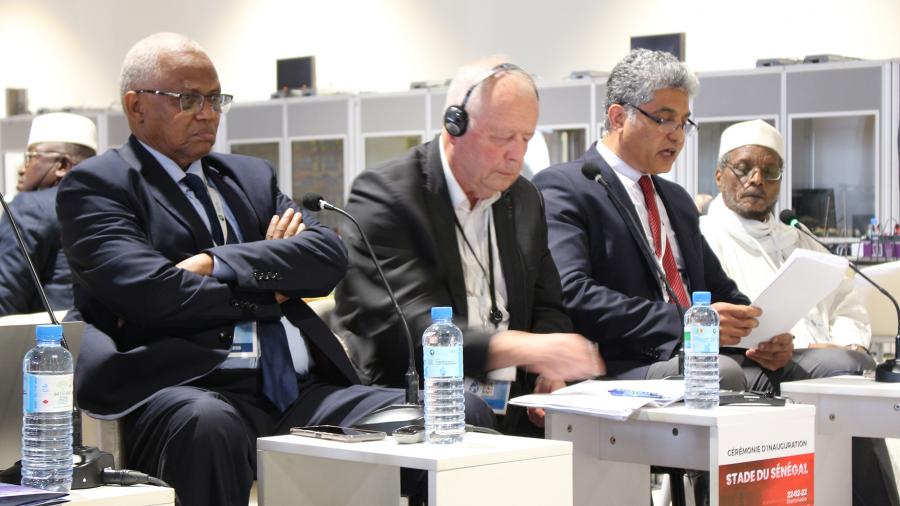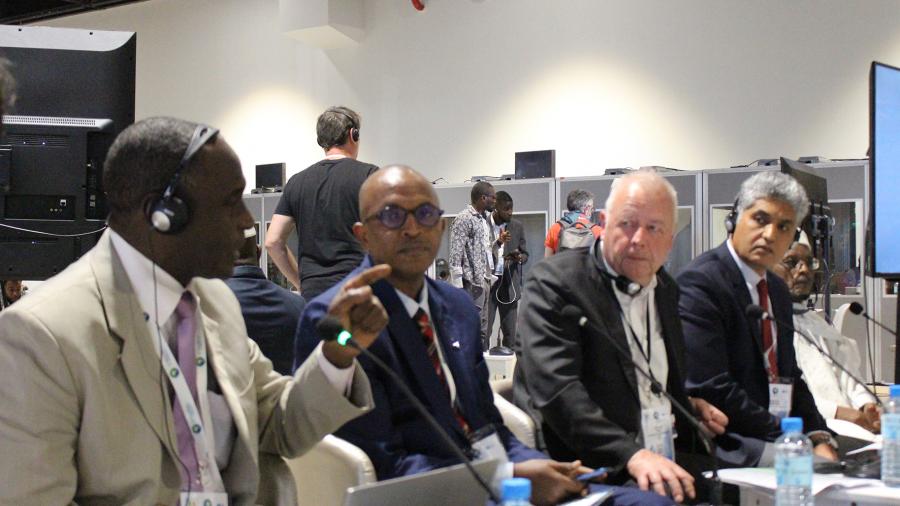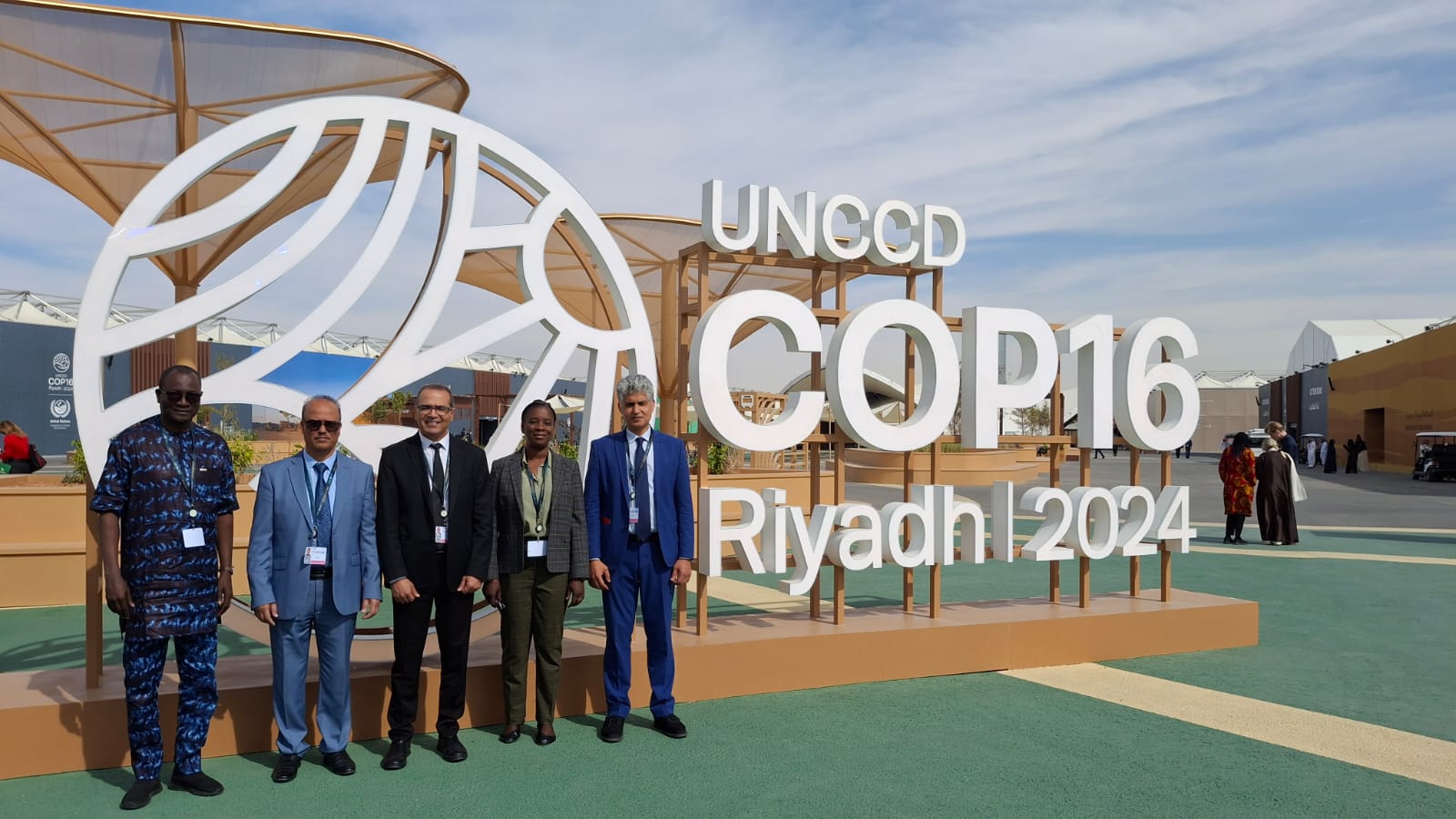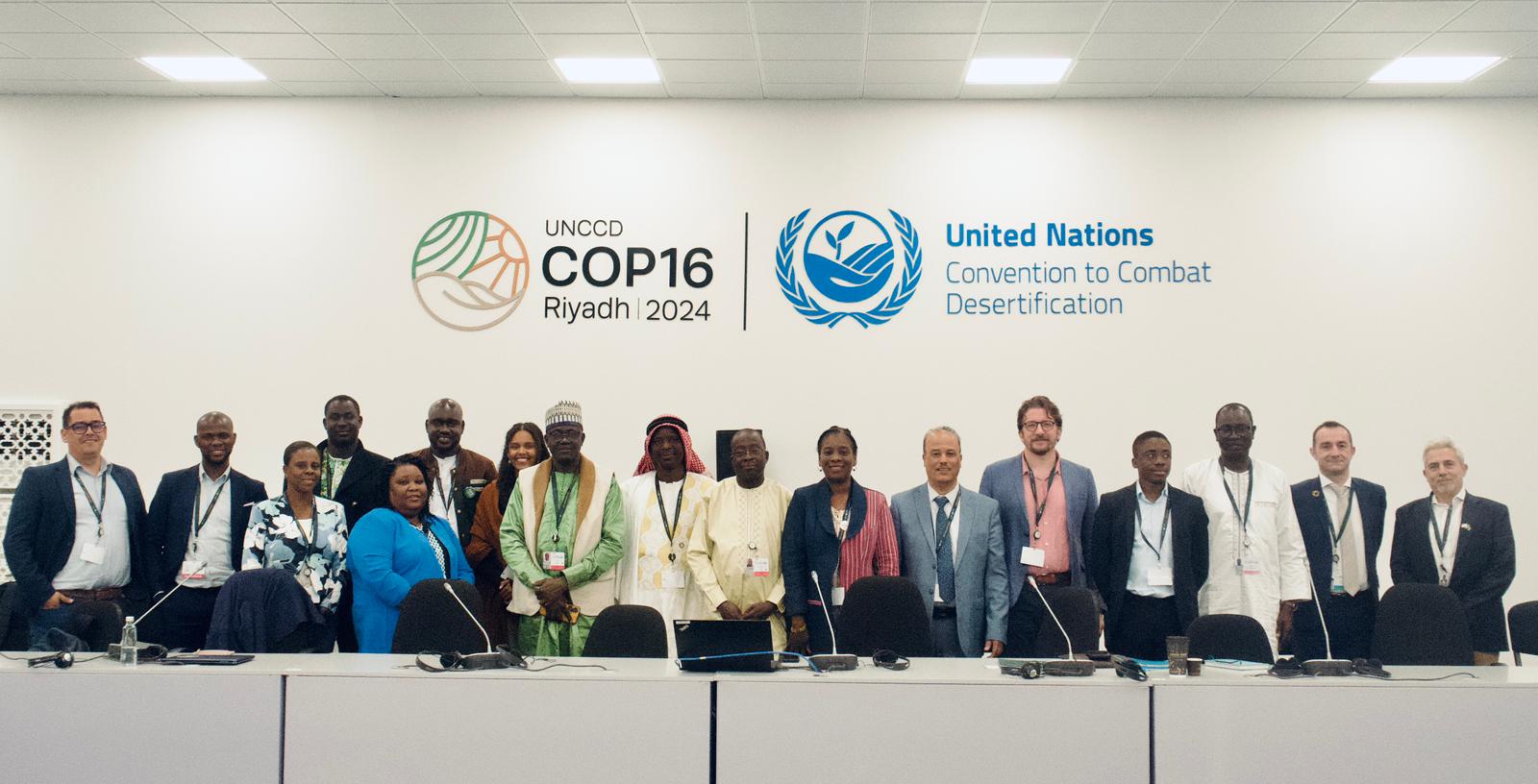27th Session of the OSS Strategic Orientation Committee, Tunis, January 28, 2025
Held on January 28, 2025 in Tunis, the 27th session of the Strategic Orientation…


Water issues and priorities in the Great Green Wall implementation.
The latest IPCC report comes once again, as a reminder of the disastrous effects of climate change on the Sahara-Sahel aeas, which have registered persistent drought for more than three decades, permanently weakening ecosystems and accelerating desertification. This renewed warning bell reminds us of the urgent actions to undertake and the need to find concrete, joint, doable and effective solutions.
The socio-economic impact of this situation is being felt. Today, more than 135 million inhabitants whose livelihoods are mainly based on farming face food insecurity and migrations to the South are increasinly growing.
Reversing this trend of ecosystem degradation has become an emergency that African leaders have tackled in order to provide an appropriate answer to the economic development of the region. The Great Green Wall (GGW) is one of the important initiatives adopted, aimed at combating desertification and food insecurity through the development of the Sahara-Sahel areas.
The Great Green Wall Initiative (GGWI) which engaged in its second decade is more than ever an opportunity to establish a solution based on nature and the vitality of African ecosystems. It aims to be a resilient socio-economic development hub for the population living there and thus contributes to strengthening the vision of a Sahel, a land of opportunities.
It is important to remember that this is a Pan-African initiative on the question of Land, which brings together African countries and international partners under the auspices of the African Union (AU) and coordinated by the Pan-African Agency of the Great Green Wall (PAGGW). Initially designed to fight against desertification and poverty, by creating a vegetation strip that extends from Dakar to Djibouti, the GGW vision has evolved into an integrated ecosystem management approach. This vision is based on the agricultural production system, the use and sustainable conservation of land, their restoration and the generation of vegetation cover as well as the integrated management of water resources.
The success of the GGW initiative objectives necessarily implies a more efficient management of water resources! Despite its arid context, this area is home to considerable water potential, made up of the permanent water resources of trans-boundary rivers and lakes (Senegal, Niger and Nile rivers, Lake Chad) as well as those of the large shared aquifer basins (Senegalo-Mauritanian, Iullemeden-Taoudéni/Tanezrouft, Lake Chad aquifers and Grès de Nubie). These are still poorly exploited and promoted. For the time being, most countries in the region live above the water stress threshold (water availability between 500 and 1000 m3/inhabitant/year), which still gives room to possibilities for the mobilization of these resources.
It's important to remind that since 2008, the OSS has made its contribution to this Initiative, by explaining the GGW program concept and by actively participating in the definition of the guidelines necessary for its implementation. Indeed, our organization has the mission to walk with the African States in the management of their natural resources in general and, water resources in particular.
The OSS has also coordinated and implemented large-scale programs in the Great Green Wall countries. Several other initiatives are being prepared, financed in particular by the Climate Funds and the GEF in particular. These already allow several countries to carry out actions for sustainable land management, mobilization of water resources for the development of agriculture, adaptation to climate hazards, the establishment of the early warning system, but also and above all to develop tools for monitoring-evaluating on-the-spot operations.
We had set ambitions within the framework of the 2030 course of the GGW. We have targeted the transformation of Rural Economic Emergence Poles (REEPs) into Rural Production and Sustainable Development Poles (RPSDPs) through the achievement of tangent results : 100 million hectares restored; 250 million tonnes of carbon sequestered or avoided; 10 million jobs created; 400 million beneficiaries).
Today, the establishment of an aligned framework and tools as well as the implementation of actions to monitor-evaluate the achievements in the field are more than ever pressing so that our commitments and our ambitions take shape and come to fruition.
This year, the OSS celebrates its 30th anniversary and restates its commitment to significantly and sustainably contribute to the PAGGW efforts, in particular by helping meet the challenges relating to the development of resources, that are the source of life.
It’s important to mobilize all the technical and financial partners in order to help meet the economic and financial challenges of this initiative.
For this to happen, partnership and networking are essential because together, is the only way we can contribute to reve
Held on January 28, 2025 in Tunis, the 27th session of the Strategic Orientation…

The participation of the Sahara and Sahel…

OSS Side Event at COP16: Strengthening Resilience in the Sahel through Multi-…